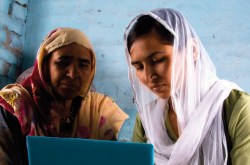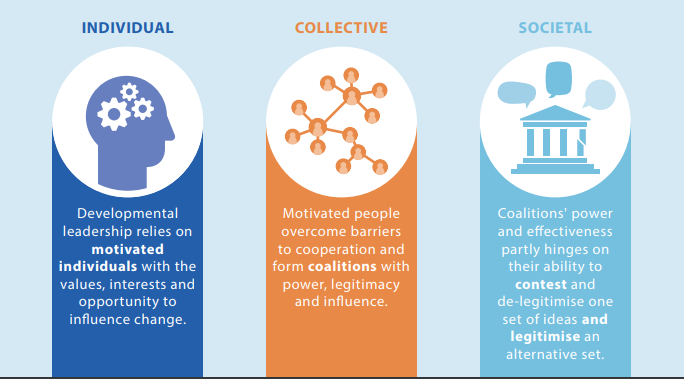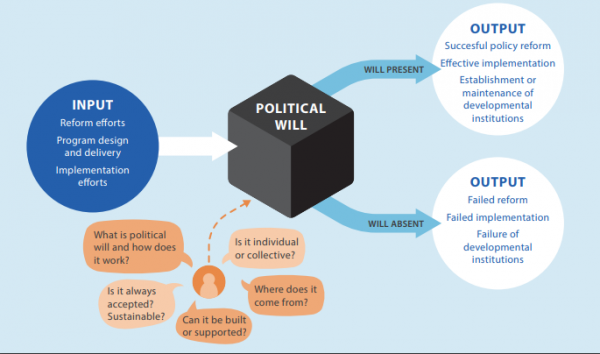Guest post for From Poverty to Power
When reforms fail, people often bemoan a lack of ‘political will’. Whether it’s failure to introduce legislation promoting women’s rights, not getting vital public services to rural communities, or weak implementation of anti-corruption measures, the shorthand answer is often that the political motivation just wasn’t there. On the flipside, its often assumed a politician’s willingness to spend valuable political or reputational capital can tip the balance in favour of meaningful change.
Political will may be a temptingly simple and intuitive explanation for why reforms succeed or fail, but it’s a turn of phrase masquerading as an explanation. What exactly is ‘political will’? Where does it come from? And crucially, how can it be strengthened? Political will is a classic black box problem. Even if we think it matters – it somehow mysteriously transforms outcomes – we don’t know how, exactly.
For more than ten years, research from the Developmental Leadership Program (DLP) has investigated the inner workings of the black box. The findings challenge two basic assumptions about where political will comes from. First, it’s not an individual phenomenon that happens inside politicians’ heads, but a collective one. No individual leader can bring about change by themselves. Frankly, there’s no point having political will if you don’t have the collective capacity to implement it. Second, collective political will doesn’t magically appear – motivation to act is built through a political process of contestation – the conflictual, though not violent, process of negotiation and deliberation. Leaders are never entirely free from rules that constrain or restrain them. In the real world, change hinges on the complex relationships between individuals and the norms and rules they inhabit – their institutional context.
The sum contribution of the research is to show how political will can be curated and embedded through a process of ‘developmental leadership’. This is a collective, strategic and political process through which people contest institutions and make change happen. It happens in the backstreets, meeting halls and homes of Suva, where a social movement of organisers and activists successfully blocked the proposed removal of protection on the grounds of sexual orientation from the Fijian Constitution. Or in Jordan, where a coalition successfully helped introduce new legislation protecting women from domestic violence. Or through the clan structures and secondary schools of Somaliland, where peace was secured and has been maintained against the odds.
Developmental leadership is typically messy, often protracted, and frequently beset by missteps and reversals.
It relies on three core elements coming together at the individual, collective and societal level (see diagram)
First, on motivated and strategic individuals with the incentives, values, interests and opportunity to push for change. Experience of higher education is key to the emergence of leaders with shared values, key skills and political networks. Elites that that helped bring about change in Mauritius, Ghana, and Somaliland were well-educated and had often gone to the same schools or universities. They often viewed their experience of higher education as formative to their future motivation in pushing for developmental change. But motivation is not enough. Even the most willing agents need a combination of power and opportunity to realise their goals, as well as the skill to work strategically. Women leaders in the Pacific used their family and political networks, alongside their education and expertise and international networks, to effectively navigate male-dominated political environments in highly politically-savvy ways.
Second, motivated people must overcome barriers to cooperation and form coalitions with sufficient power, legitimacy and influence. Their effectiveness hinges on the kinds of political strategies and tactics they use, their perceived local legitimacy, the quiet political work they do behind the scenes, and ultimately, their pragmatism. Trust between the public and private sectors can be built through leaders using symbolic public gestures that signal commitment. Coalitions can be made up of people committed to reforms, as well as those who are simply opportunistic.
Third, coalitions’ power and effectiveness partly hinges on their ability to contest and de-legitimise one set of ideas and legitimise an alternative set. Fixed ideas can be a significant impediment to change, and the work of coalitions is often to change the ideas that underpin all institutions. If they can do that, they can reformulate institutions in ways that are perceived as locally legitimate, anchor them in local norms, and therefore make change more sustainable. Narratives and framing are important for how ideas are changed – that is, how change is communicated to the people who need to be convinced it’s fair and right for society. Effective gender programming sometimes may have to avoid using the language of gender entirely, for example.
So what does this all mean for building political will? Institutions do change, whether rapidly or incrementally, through a political process of contestation. Aid actors can strategically support this process if they think and work politically. They can support the development of leadership values and motivation through quality education at all levels. They can create space for coalitions to form and to work their politics. Even networks with high levels of trust need ‘safe spaces’ where these processes can occur. And they can navigate legitimacy politics by identifying areas for contesting norms and ideas, without undermining the legitimacy of the actors they work with.
Collectively, this adds up to a bigger picture on how donors can approach politics, power and ideas in aid programming. This sometimes means letting the process run its course, and not jumping to answers. Politics is not a problem of political will, it is the necessary process through which agents defend, contest and change institutions, and through which the necessary political impetus for change is built and sustained. Politics is not the obstacle, it is the way forward.













